Thai general election: Voters in the north weigh options as lingering smoky air chokes locals
Air quality in northern Thailand has been among the worst in the world for weeks. The issue has seeped into the national consciousness, with toxic air spreading to the capital city of Bangkok and beyond.
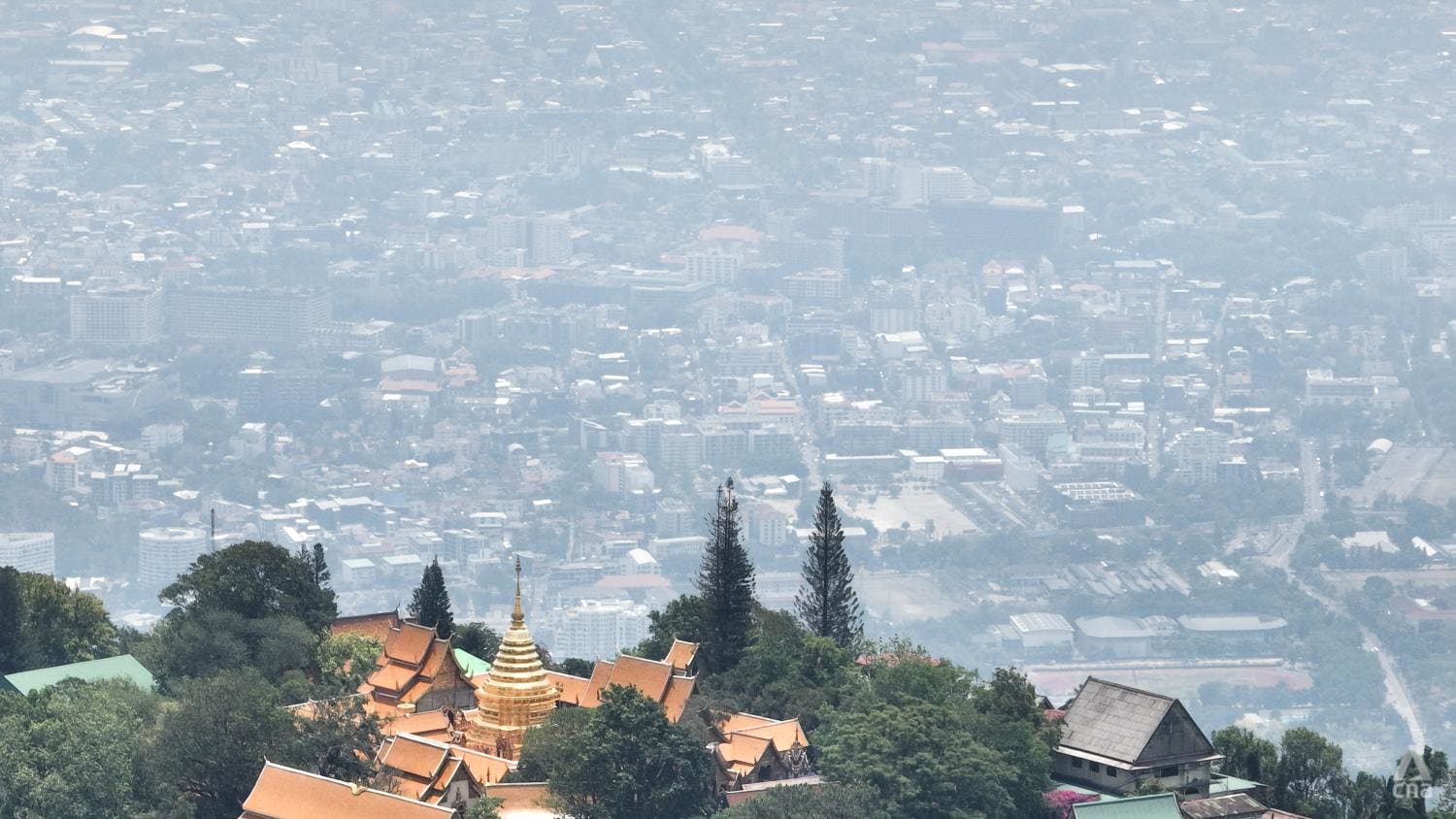
Even on a relatively clear day in Apr 2023 in Chiang Mai, the city is shrouded in smoke during its peak haze season. (Photo: Jack Board/CNA)
CHIANG MAI: The ring of scorched earth and blackened tree trunks runs almost to the doorstep of the modest house belonging to Charoen Thipkaew, in the rising agricultural hills outside Chiang Rai city.
Despite relieving rain that has fallen the past night, the air is still smoky and the burnt soil is hot. A fire raged across these hills in previous days, just like it has all over upper northern Thailand, during an arduous dry season for locals.
“The fire started around 4am and it spread all over this hill. We were lucky that the fire did not reach our vegetable plot,” the 69-year-old said.
“I was scared. I could not breathe properly. There was smoke everywhere. My grandson was the first one out of the house. He watched the fire burn all morning. I think if it weren't for the fire rescue team, we would be in serious trouble,” Charoen added.
Firefighting volunteers - equipped and coordinated by non-governmental organisation The Mirror Foundation - helped extinguish this blaze and have been on constant duty for more than a month.
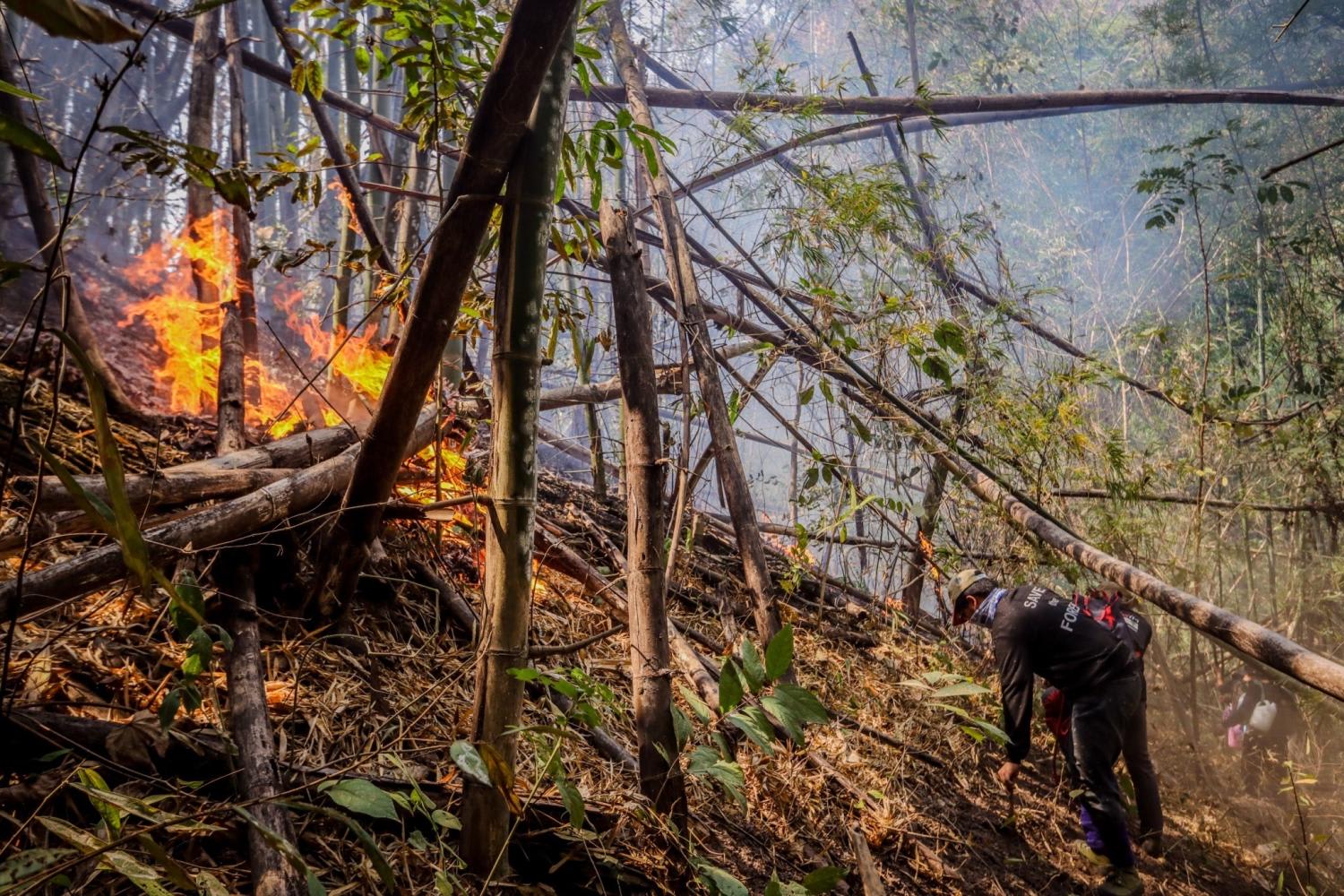
The work is exhausting in extreme hot temperatures - Thailand set record highs in April - on dangerous terrain and amid toxic air conditions.
“I feel that the smoke has a big impact on my health. Even though we try to be as careful as much as we can, luck is not always on our side and real danger persists every day that we are out there,” said one of the foundation’s frontline personnel, Arso Armor.
Air quality in northern Thailand has been among the worst in the world for weeks on end as hundreds of fires like this one have burned across the region.
Much of the dirty haze that has enveloped the region is caused by seasonal agricultural burning, especially to clear land used for growing sugar cane and maize after the harvesting season. This type of burning is a cheap and fast way to clear crop waste but also improves future yields and increases the size of their growing areas. In the mountains, croplands continue to take over natural forests.
The issue has worsened as food demands in Southeast Asia and China have grown. A majority of the maize produced in the region is used solely as animal feed to help raise cows, chickens, pigs and ducks.
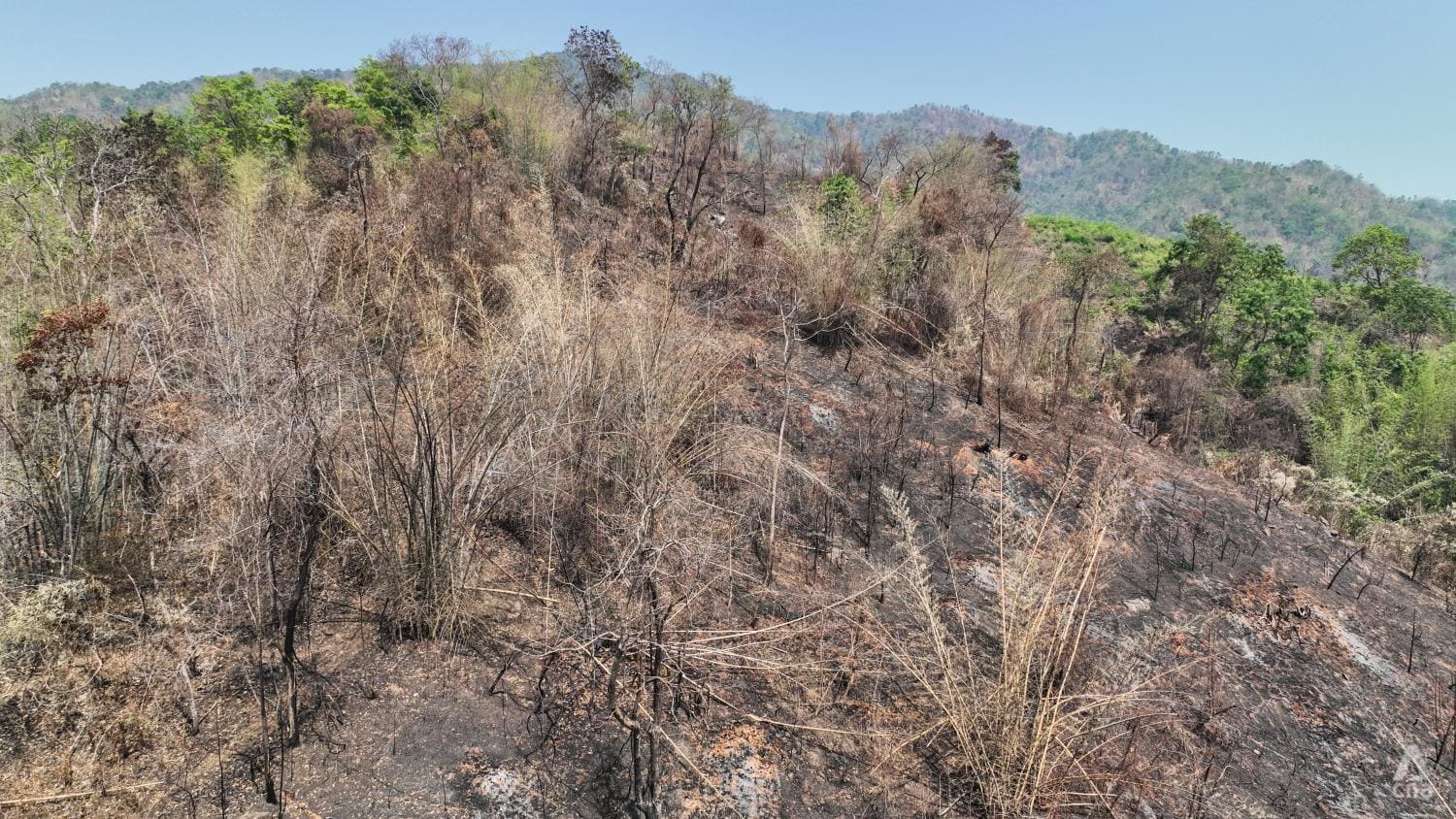
Far from only affecting rural residents, the issue has seeped into the national consciousness, with toxic air spreading to the capital city of Bangkok and beyond. Large northern urban centres like Chiang Mai and Chiang Rai have, at various times, held the inglorious title of the world’s most polluted city.
Nearly two million people received hospital treatment for air pollution-related illnesses between Jan 1 and Mar 19, according to Thailand’s Public Health Ministry. Air quality has generally not improved since then.
It means that for residents preparing to potentially vote in a new government, the lingering unhealthy air will be front of mind when they arrive at the ballot box on May 14.
DYNASTY POLITICS PREVALENT
Northern Thailand has been fortified as a political stronghold for the Shinawatra family, since the emergence of Chiang Mai local Thaksin Shinawatra as an electoral force in the late 1990s.
He claimed a landslide national electoral victory and became prime minister in 2001, winning over the northern region with a populist agenda that promised universal healthcare and to reduce rural poverty.
Despite Thaksin being removed from power in a military coup in 2006 and entering overseas exile, and his Thai Rak Thai party being dissolved, the legacy of the man and his policies remain powerful on his home turf.
The latest iteration of the party - Pheu Thai - is one with grand ambitions to form the next government. Thaksin’s daughter, Paetongtarn Shinawatra, is the most favoured prime ministerial candidate according to national opinion polls.
An opinion poll conducted by the National Institute of Development Administration on Apr 16 put her in the top spot with 35.7 per cent of the vote.
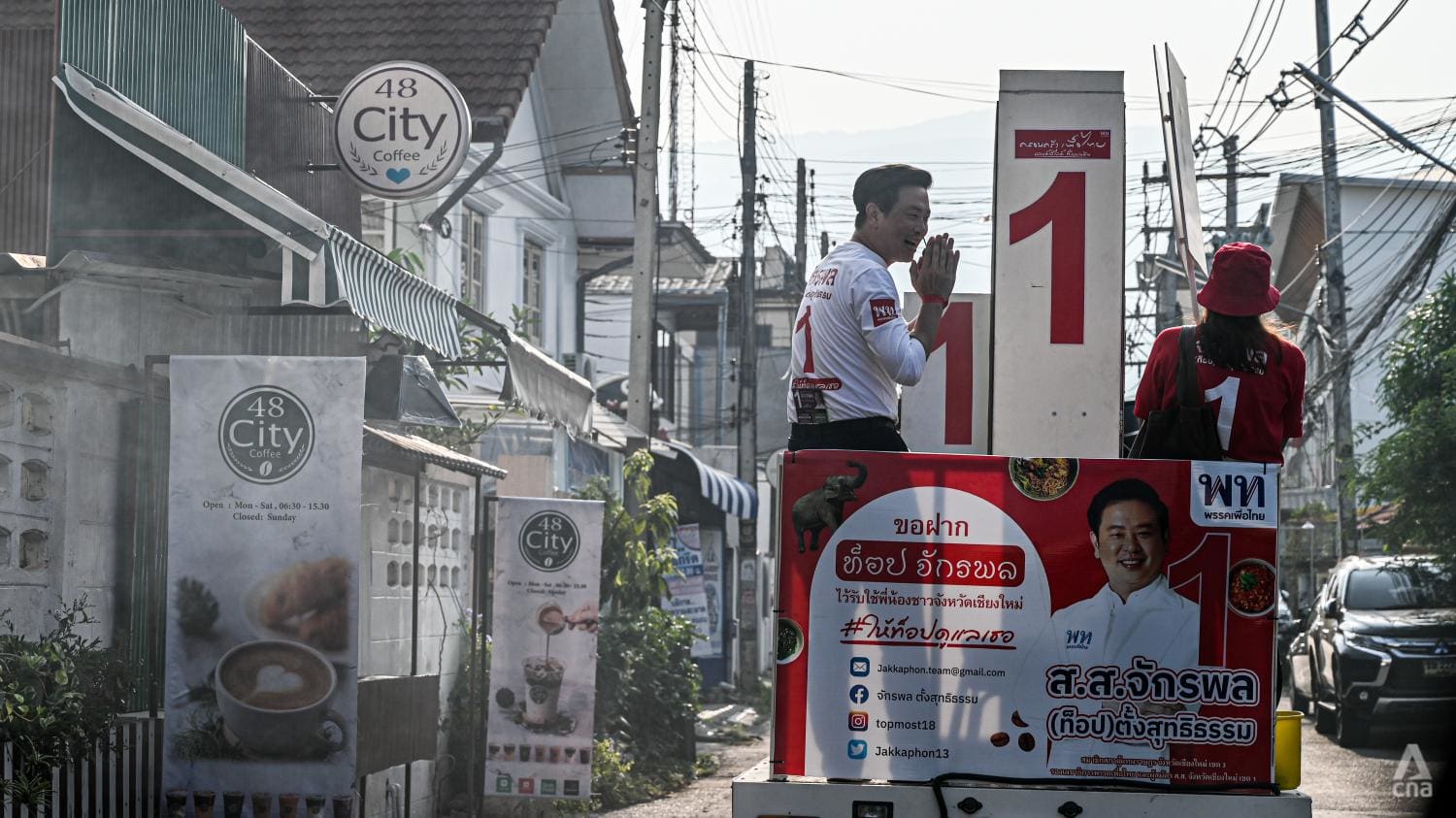
The poll asked 2,000 respondents nationwide which prime ministerial candidates they would support.
The Pheu Thai Party is expected to sweep most of the seats across the upper north during this election, just like it had before. But there will be key battles, especially in urban districts where candidates, especially from the progressive Move Forward party are eyeing victory.
“Chiang Mai is the most important province for this region. And I think Pheu Thai will win almost all the seats except for just a few constituencies. It will depend on the local situation in those areas,” said Nuttakorn Vititanon, a political analyst from Chiang Mai Rajabhat University.
“From Move Forward’s perspective, they aim to win in urban areas. They can win those, for example in Chiang Mai and Chiang Rai,” he said, explaining that multi-party races with several established candidates can help dilute votes away from Pheu Thai.
Long-serving, experienced Pheu Thai candidates, who have won elections many times, may also face difficulty against fresh opponents with energetic campaigns, he said.
Nuttakorn said he believes the way candidates frame their policy on tackling the air pollution issue could be critical in close races.
“For the people, it’s a big problem not just this year. They’ve been facing it for more than 10 years,” he said.
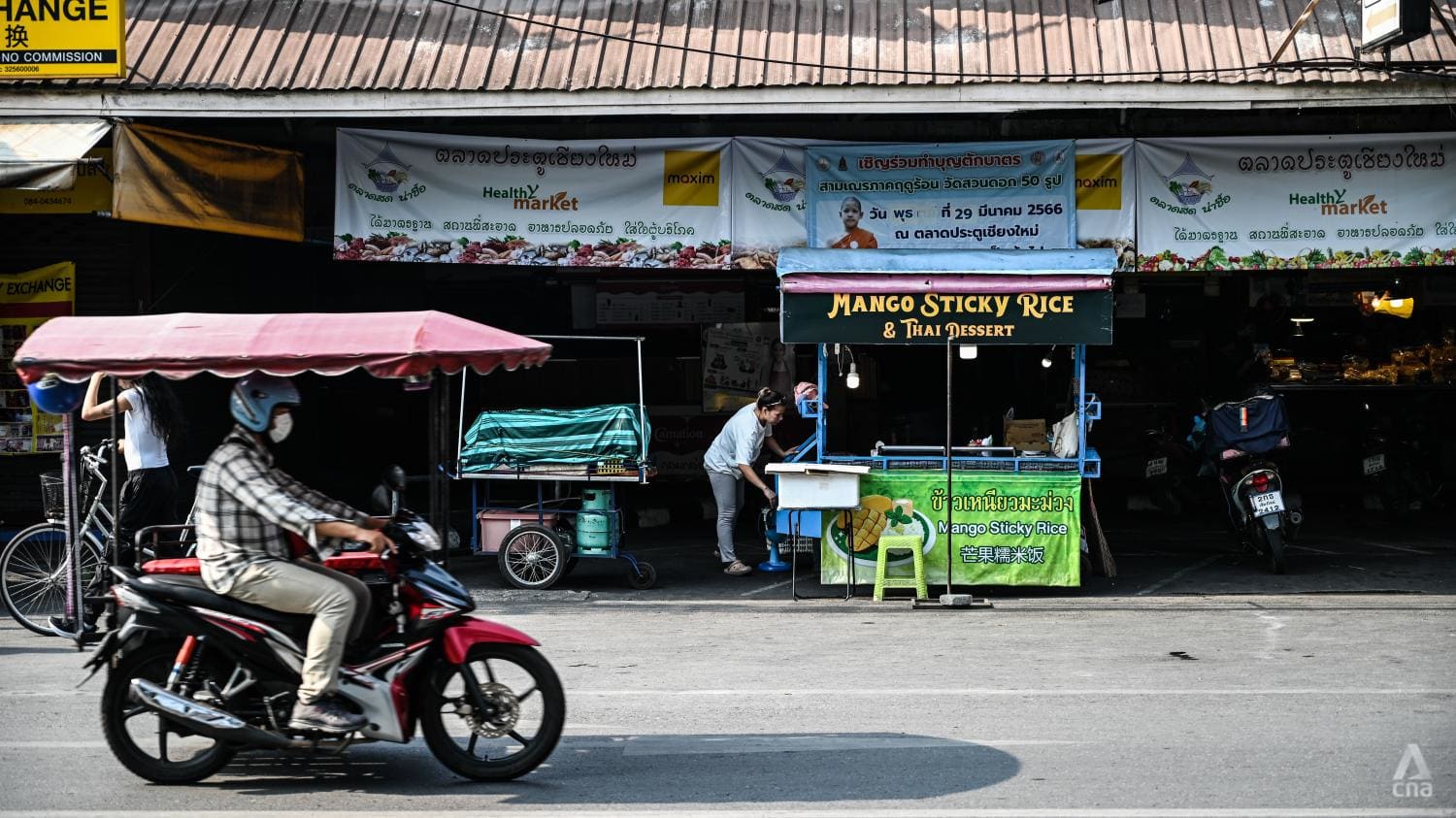
In District 1 - the urban heart of Chiang Mai city - both leading candidates for Pheu Thai and Move Forward are eager to press their clean air credentials.
As an opposition member of parliament during the last term, Pheu Thai’s Jakkaphon Tangsutthitham already has a track record in parliament in trying to put forward clean air legislation.
The previous administration failed to pass any version of an air pollution bill during its time in office, despite several versions being tabled.
Jakkaphon says that a Pheu Thai majority government could deliver a Clean Air Act with urgency to end what he calls an “ugly cycle”. “We’re going to act fast and we’re going to be able to do it right away, to kill the PM2.5 problem,” he told CNA.
“Of course, I'm really upset and mad because my child, my boy, has a nosebleed every day. My people in the mountains, they cannot see because of their tears all the time. The first thing for me and for Chiang Mai, if the next election is a success, is a Clean Air Act.”
That would involve escalated high-level talks within the Association of Southeast Asian Nations (ASEAN) and putting pressure on the enormous private companies that enable the burning to continue.
“We’re big enough, we are powerful enough, to sit and talk and find a solution. Size matters. No matter how big the private company, no matter how big the monopoly, we will put the Clean Air Act at the centre of the conversation,” Jakkaphon said.
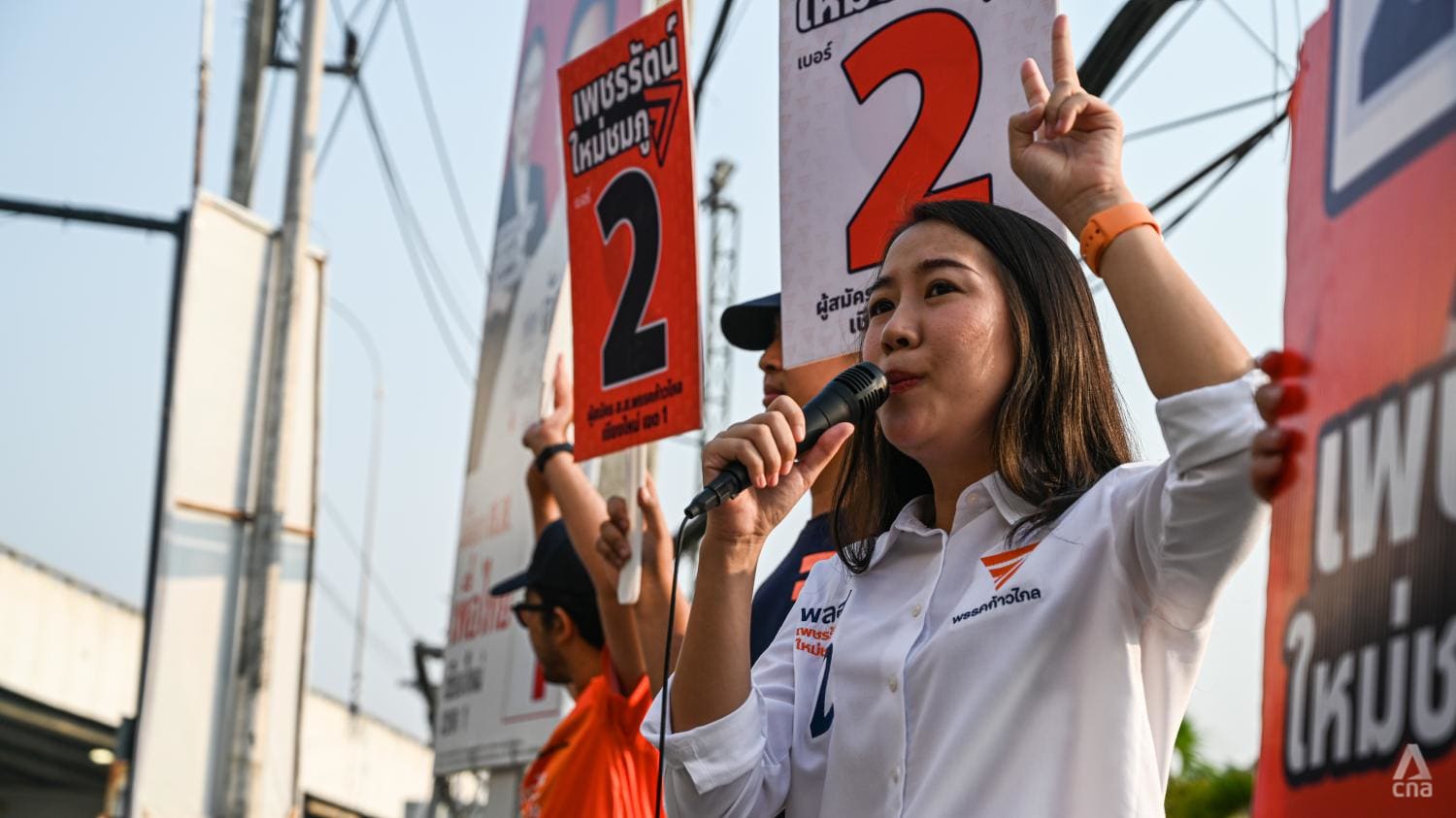
Move Forward wants to enact a ban on agricultural products that contribute to the burning problem, including those imported from neighbouring countries that then enter Thailand tax-free.
As part of a wider agenda, the party wants provincial governors directly elected - instead of being appointed by the central government - to decentralise key decisions and budgets and put them in the hands of local administrators instead.
“Solving various problems is a complex issue. The government should cooperate with other countries sincerely and honestly. Food security is important, and our government can ban agricultural products that come from burning,” said Phetcharat Maichompoo, the party’s district 1 candidate in Chiang Mai.
“We will allocate 3 million baht (US$88,000) to each sub-district to help eradicate forest fires in the forest areas. This includes purchasing equipment and managing fuel in the area.
“I used to be a volunteer forest firefighter, so I know well that the government does not have as much budget as it should have and makes it hard to fix the problem directly,” she added.
Those on the front line - like Natthapon Singtuan, head of the wildfire volunteer team of the Mirror Foundation - agree more resources to deal with the annual problem need to be provided on a local level by whoever is in office.
“If political parties recognise this issue and take it seriously, there can be a deployment of various technological resources to combat the fires. This will make the situation less burdensome,” he said.
“There are many measures that can reduce these problems, but the issue may not disappear if the government does not understand the severity of the situation.”
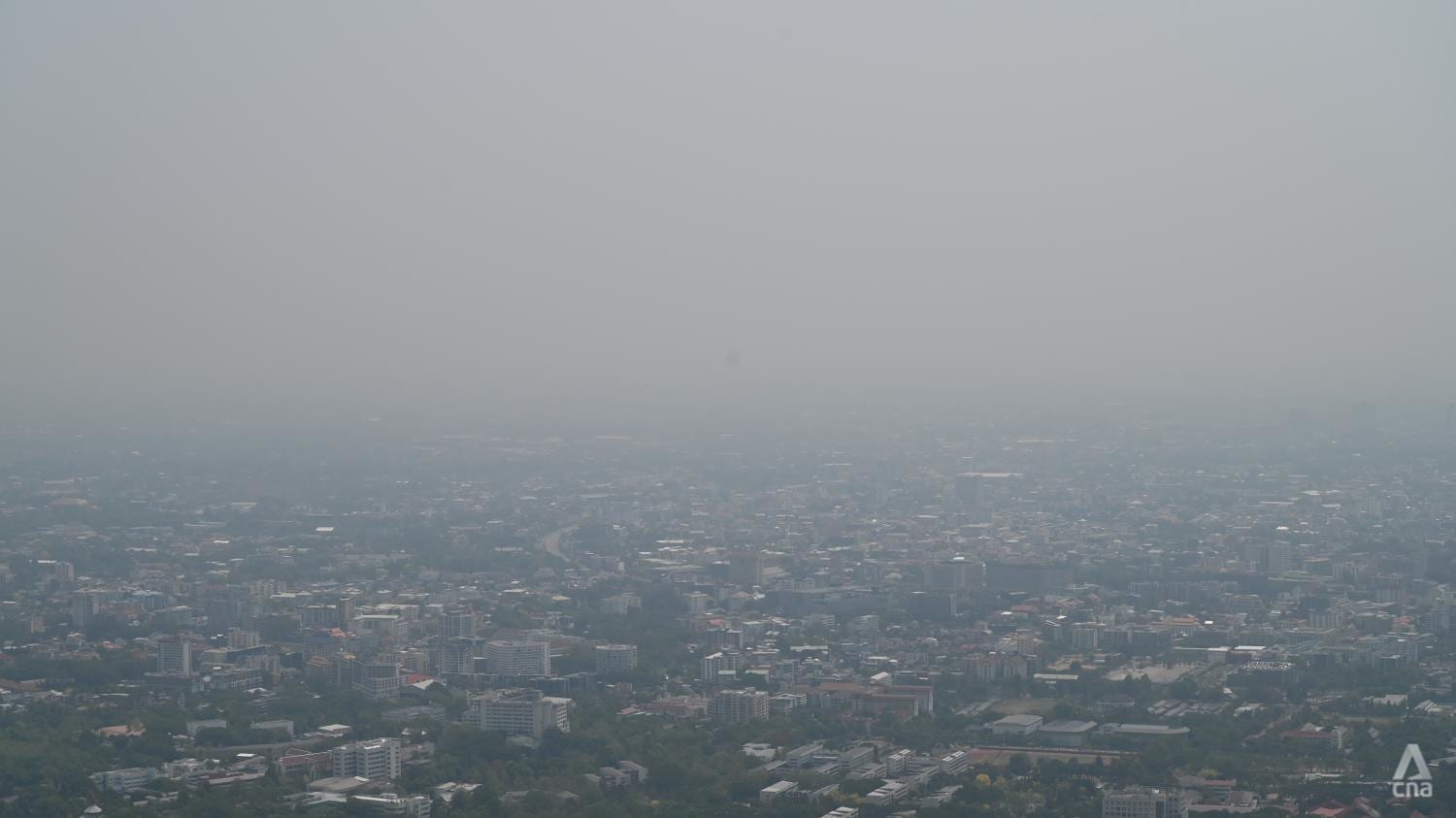
SMOG SEASON AFFECTING TOURIST NUMBERS
For the business and academic communities in northern Thailand, patience is waning for a political answer to the damaging issue.
As a thick haze hung over Chiang Mai for weeks on end, Ruchipat Suvansai, the owner of a boutique hotel and cafe watched his customer numbers wither away.
The city is one of Thailand’s most popular tourist destinations but its credentials have taken a hit when going outside meant breathing toxic air. The winter season, a time when visitors typically rush to the mountainous city for cooler temperatures, has become the smog season.
“Cancellations of hotel reservations and various tourist activities have increased significantly. But the scary thing is that in the long term if the pollution continues like this every year, it will turn into a new low season,” he said.
“If this money disappears, the outlook on the economy and the general atmosphere of Chiang Mai will be very gloomy. Every political party that comes to power should pay attention to this issue because it affects the people, no matter who they vote for or where they live.”
Street demonstrations emerged in northern cities during the worst of the smog crisis. Furthermore, a public network of concerned residents has compiled a petition to launch legal action against Prime Minister Prayut Chan-o-cha, ministers and related agencies for failing to take action to resolve the problem.
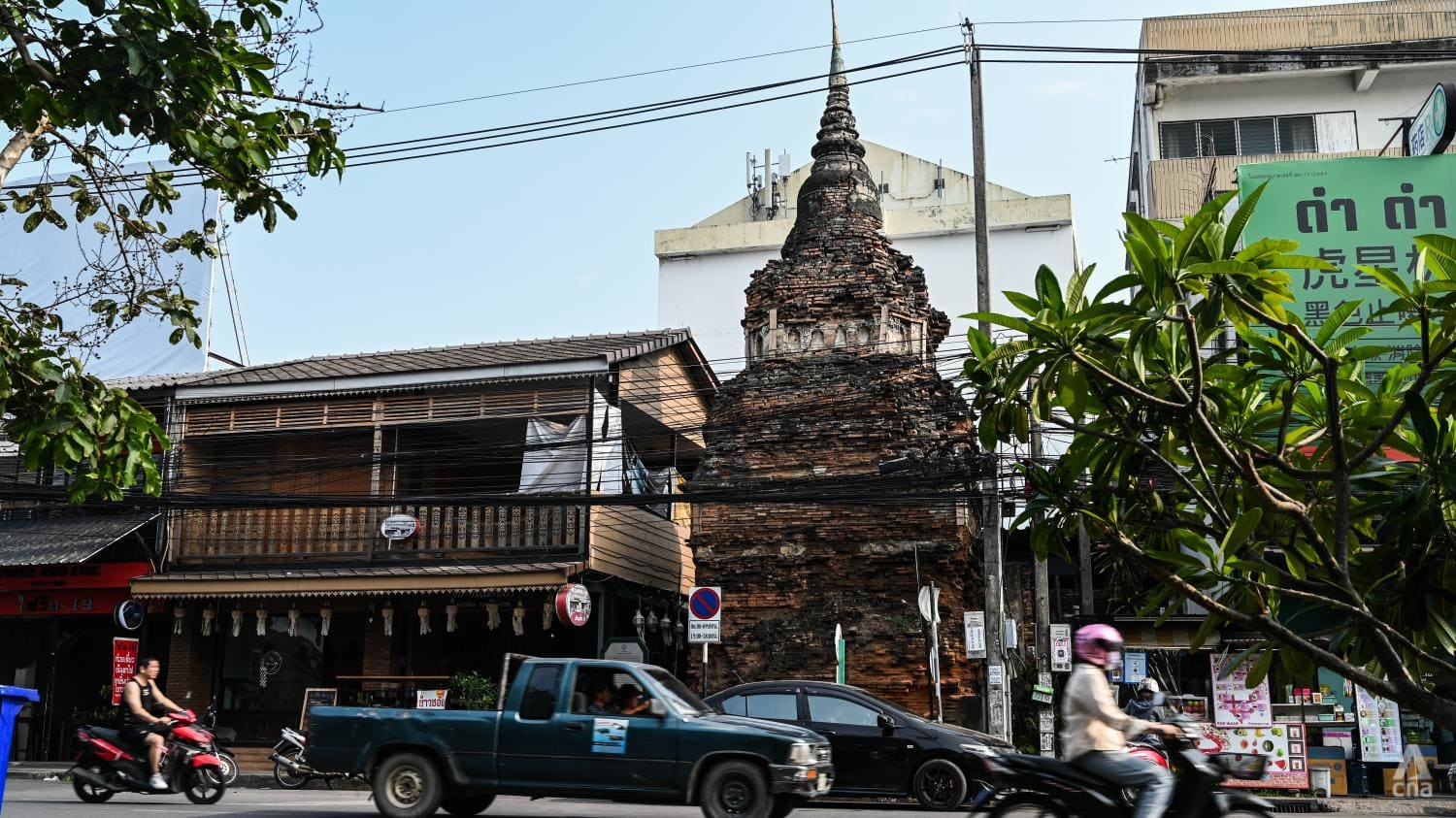
Government policies, like mandated zero-burning periods and economic incentives to small-scale farmers to not burn, have proven ineffective, experts say.
“No one is listening to that anymore,” said Somporn Chantara, the head of the Environmental Science Research Center at Chiang Mai University and the chairperson of the Academic Centre for Air Pollution in Northern Thailand.
“It seems like when the problem happens in Bangkok, it's huge, right? But when it happens in other areas, like in Northern Thailand for more than 10 years already, the action is very, very slow, and not impactful. So that's why we think that we need more action from the government.
“It has been very bad. Luckily, some of us have an air purifier at home. But think about people who do not. How can they live with that? It's definitely going to affect voting,” she said.
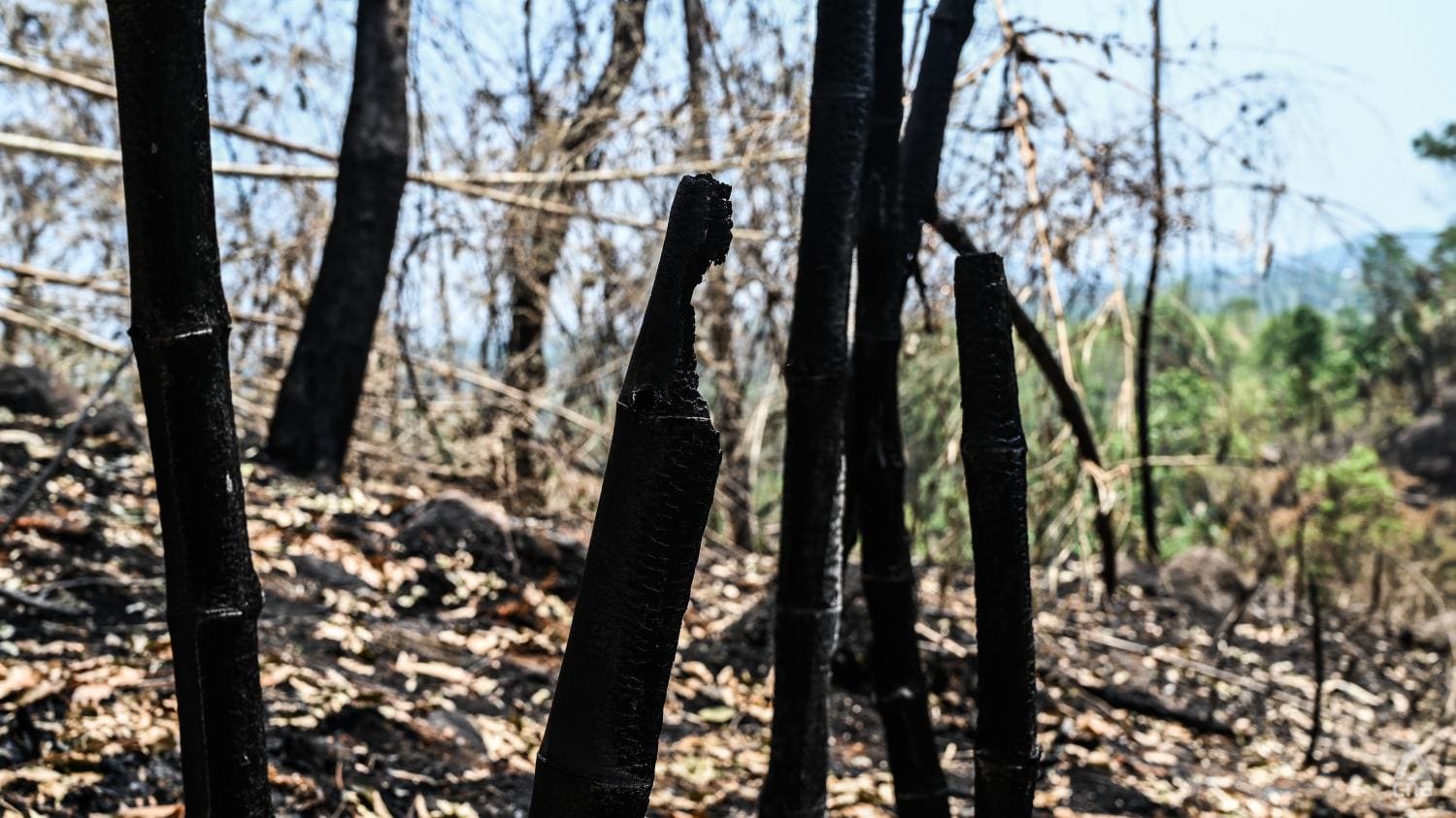
For Weenarin Lulitanonda, the co-founder of the Thailand Clean Air Network, a policy shaped purely by political parties will unlikely deliver the structural changes required to fix a hugely complex problem.
Her civil-society-led network of people from the public sector and academics from various fields has proposed and submitted its own legislation to combat the air pollution issue but has watched it sit idle on the prime minister’s desk for more than one year. Meanwhile “the airpocalypse” has returned again to the country.
“Underlying all of this is a huge structural problem. It's a result of mismanagement at a country level, at a macro level, with this over-focusing on economic growth instead of environmental protection,” she said.
“Without environmental protection, you're compromising the public health of people living here. And that is a result of so many government administrations, accumulatively. And to solve it, you need to delve into the root causes of it.
“This election is a critical time,” she added. “And we hope that people will be asking the right questions and listening attentively to the answers.”
Additional reporting by Jarupat Buranastidporn.












